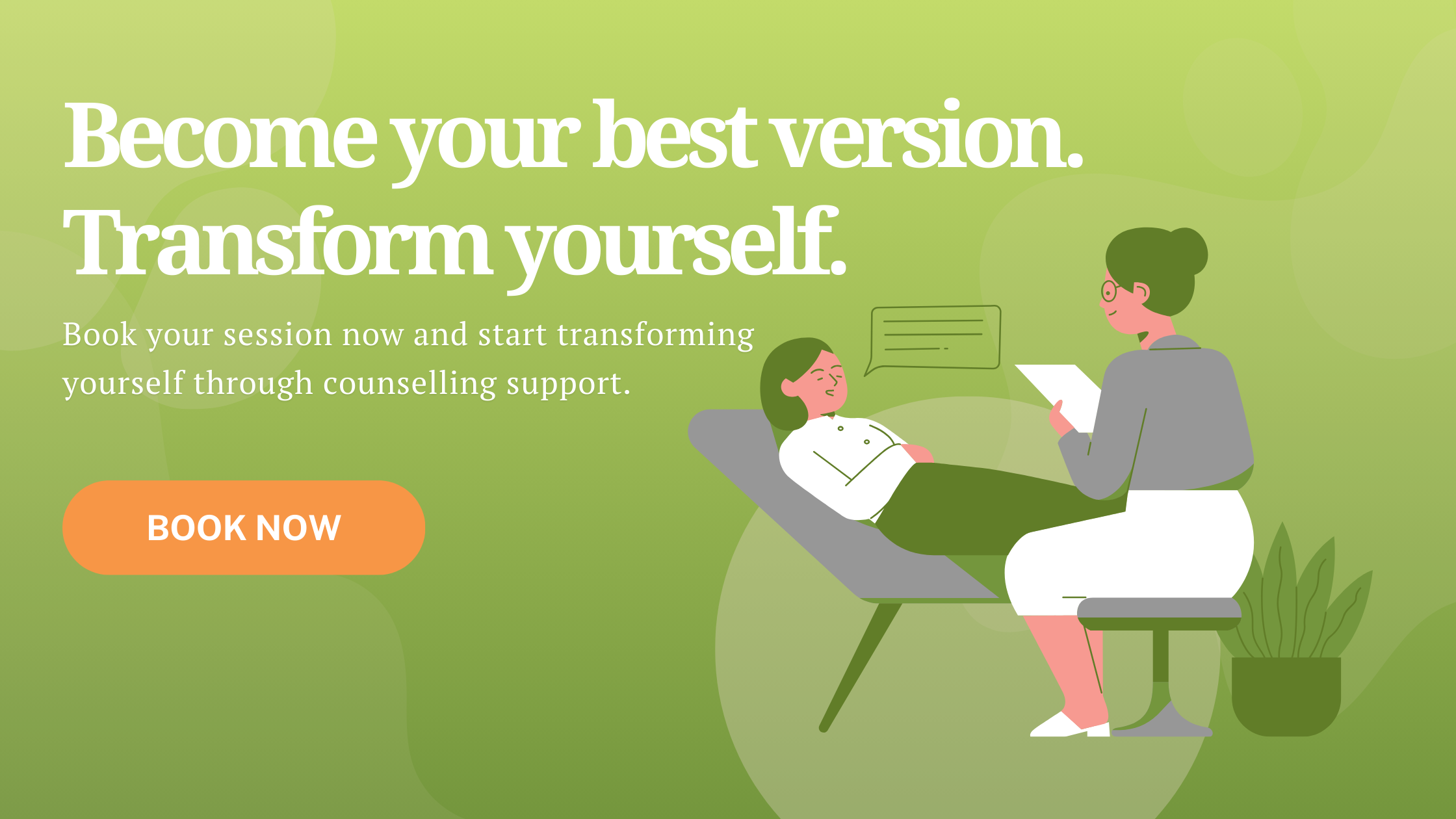
We all feel insecure from time to time in our relationships; it’s completely normal. However, some people feel like this most of the time, to the point where it becomes overly consuming for both partners. Knowing how to handle and manage insecurity in a relationship is something that can truly make a difference between a relationship’s flourish and failure.
Signs of Insecurity In a Relationship
Insecurity in a romantic relationship can feel like:
- The constant fear that your partner will leave you
- Feeling you don’t have enough to offer
- Ruminating about all the times in the relationship when you looked or behaved imperfectly
- Feeling like a fraud destined to be exposed
- Seeing yourself as boring, overweight, stupid, ugly…
- Feeling like you don’t deserve lasting love
- Experiencing guilt and shame often
- Being hungry for attention and reassurance, but even when you get it, it rarely seems convincing enough
- Switching between doubt, anxiety, anger, and guilt back and forth
- Consuming jealousy that leads to unhealthy thoughts and actions such as obsessively questioning your partner’s whereabouts, privacy violations, controlling behaviour, etc.
These feelings can especially exacerbate when we are in a relationship with someone we have intense feelings for. The more important the relationship is to us, the more we think we stand to lose. This is where our insecurities become super uncomfortable – they spike anxiety, fear, suspiciousness, anger, and other unpleasant and unhealthy emotions.
.
What Causes Insecurity In a Relationship?
At its core, insecurity usually comes from a deep sense of inadequacy. The frequent underlying belief is that we are not enough the way we are. That we are flawed, ugly, or unworthy of love. Often, this sense of “low worth” comes hand in hand with one or both of these unhealthy patterns – a harsh inner critic and the belief that others will love us only if we are behaving a certain way.
Acting strong, fun, compliant, agreeable, beautiful, hard-working, and always there for others, whatever the set of criteria is, we may believe that it’s the only way to make our partner stay. Sometimes, this can even feel like tricking our partners into loving us. Maybe not explicitly, but somewhere between the lines, we may fear that the moment they discover our true colors, they will leave.
On the other hand, we may feel powerless before our inner critic throws insults at us all the time. It may become so embedded in our daily self-talk that we are not even aware of how much of an impact it has on our overall self-esteem.
The Impact of Our Past to Our Current Relationships
All these beliefs are usually the product of our early experiences. They come from the ways we interpreted and incorporated those experiences into our belief system the best we could with the limited resources we had. Some examples of those early experiences may be:
- attachment styles we built with our primary caregivers, that we, later, transfer to our other relationships
- main messages we received from our environment that tailored deep beliefs about ourselves, other people, and life in general
- observing relationships around us and “learning” what we absolutely should and should not do to avoid ending up hurt
- hurtful experiences, like being rejected, neglected, or humiliated by someone we cared about
While it can be easy to blame our partner’s behaviors for our insecurities, the truth is, most of the time, insecurity in a relationship comes from inside of ourselves. Indeed, being in a relationship with someone who regularly judges most of what we do can surely shake our confidence. Putting up with repeated criticism and rarely getting affection or appreciation from our partner can increase our self-doubt. But pay attention, the word is increase, not create. It may be good to remember that other people cannot make us feel or behave in a certain way. Only our thoughts and beliefs can.
Can Insecurity Damage a Relationship?
It is completely normal to feel insecure once in a while. In small amounts, it can even be beneficial at times, because it may motivate us to put more effort into our partnership. It is chronic self-doubt that can negatively impact our mental health and interfere with our relationships.
One of the key elements of successful romantic relationships is an authentic connection between partners. Deep connection comes from authenticity, and authenticity requires us to be open to showing our vulnerable side. To do that, we need to believe that, even with our vulnerabilities, we are still beautiful and worthy of love. In other words, we need to be comfortable with who we are, at least to a certain extent. Chronic insecurity can stand in the way of engaging with your partner authentically by preventing you from being completely yourself.
Constant worry in a relationship can be mentally exhausting, robbing you of peace and happiness. Instead of enjoying the journey and having a good time with the person you love and care about, obsessive doubts can turn your head into a truly uncomfortable place to be. And like if that’s not enough of a pain if you let your insecurities get out of hand and impact your behaviors, it can lead to a set of unhealthy interactions with your partner where you’re both unsatisfied and the relationship suffers.
We Fetch For Clues To Confirm Our Toxic Beliefs
For example, insecurity in a relationship can sometimes cause you to misinterpret some situations or exaggerate problems. It may not sound intuitive but we, as humans, are constantly in search of clues to confirm our beliefs. This gives us a sense of structure and control. We have all kinds of beliefs, and most of them are accurate and help us organize and interpret information. However, some of these beliefs can be unhelpful and unhealthy. But our brains can be stubborn and instead of letting go, they seek to confirm those beliefs too.
In the context of relationships, this means that, if you believe your partner will hurt you, leave you, or betray you, there is a high chance that you will, consciously or unconsciously, try to find proof for your fears. This is a natural response to anxiety – you’re trying to feel prepared if the worst-case scenario happens. However, this causes your anxiety to spike up. Not only that, but this may even lead to a self-fulfilling prophecy where you start behaving in a way that induces the exact reaction you want to avoid. Simply put, you may start finding problems where they don’t exist. This not only fuels your insecurities further, but also leads to unhealthy behaviors like putting your partner down, jealousy, accusations, and constantly asking for reassurance, just to name a few. All those behaviors push your partner away and disrupt intimacy and trust in a relationship.
How Do I Stop Being So Insecure?
Depending on where your self-doubts come from, there are several strategies and steps you can take to tackle them.
1. Tame your inner self-critic
People with a strong inner critic know how hard it is to suppress the annoying voice that’s putting them down. Sometimes this little voice is so persistent and so convincing, that we accept it as our reality. Since it can be so loud sometimes, and so embedded in our thought patterns, the solution is not to shut it off; it’s often impossible. Instead, pay attention to what the voice is saying and then actively stand up for yourself. Treat your inner critic like a misbehaving child that you’re trying to teach how to be civilized and stop firing insults. This way, you’re becoming mindful of your self-diminishing thoughts, taking a step back, and then making an active effort to reframe them. It allows you to reject unhealthy attitudes toward yourself and accept a more realistic approach as an accurate reflection of who you are.
In the beginning, this kind of self-talk can feel a little bit unnatural, like you’re faking it. However, with persistence, it usually starts feeling less and less like labor, and more and more like something authentic.
2. Make a list of your strengths (short-term solution)
As an emergency boost to your self-esteem, it can be helpful to make a list of all your positive traits. This list represents what you bring to the table in a relationship. This is not the time to be modest – get creative and write down every positive detail you can think of. Maybe you have a gorgeous smile or you’re a good kisser. Maybe you don’t have a smokin’ hot body but you’re supportive and make your partner feel appreciated. Or maybe you’re not that funny but you’re trustworthy and, on top of that, a great cook. Nobody is perfect. But it’s important to know that it’s not necessary to be perfect to be loved. Imperfections are what make us human. Learn to love your uniqueness.
One important thing to have in mind is that this list does not represent the reason you deserve to be loved. It should just serve as a reminder of how many positive traits you have because, during times of strong self-doubt, they are easy to forget. You, with all your quirks and experiences and scars and mannerisms, you as a unique human, are loveable. Let that sink in. Sometimes this is hard to accept.
3. Let go of conditions you imposed on yourself to deserve love
The underlying belief: “They will only love me if I am this or that” is what can often be seen behind insecurities in relationships and what fuels self-doubt further. On some level, when you hold this belief, you send yourself a message that you are not truly loveable at your core, for who you are, but that you need to deserve love by doing certain things and behaving in certain ways. But you don’t. We choose our partners and our partners choose us.
Of course, you need to invest in a relationship for it to be healthy. It’s necessary to put work into your partnership to thrive. It’s good to do nice things for your partner, to show respect and affection, to build trust, and make them feel safe and appreciated. But you don’t need to do certain things to be a person worthy of love. There is a difference between the two.
If we feel worthy of love only if we meet certain criteria, that feeling stands on an unstable ground simply because we will sometimes fail. Inevitably. Everybody does. This is why it’s important to start loving yourself for who you are and not for what you do. To recognize that you are enough. To realize that your partner is with you because of you (even if you’re super not sure about it right now). Self-compassion can be incredibly helpful with this!
4. Communicate with your partner openly and effectively
It’s important to get clear about what you and your partner both need in a relationship and discuss realistic and reasonable ways you can help each other fulfill them. Be aware that this kind of talk requires both partners to ditch defensiveness and assumptions, and be kind, honest, and open with each other. Intimate connection creates a safe environment in which you can work to overcome insecurities and meet each other halfway. Sometimes this is not easy, especially if there are perpetuating problems and frustrations in a relationship, but with mutual effort, it can be done.
Coping with insecurity in a relationship can be tough because it requires you to deal with your core beliefs and make an active effort to break the patterns that influenced your thinking for years. Still, with consistency, self-reflection, and effective communication with your partner, it is possible. And please remember that it doesn’t have to be a lonely battle. Support and help from someone you trust, like a friend or a therapist, can make it a lot more bearable. Learning to manage your insecurities will increase not only the quality of your mental health but the quality of your romantic relationships as well.
 P.S. If you like this article or know someone who may find it useful, please don’t hesitate to share it on your social media.
P.S. If you like this article or know someone who may find it useful, please don’t hesitate to share it on your social media.
Interested in learning more about coaching or therapy? Contact us today.




